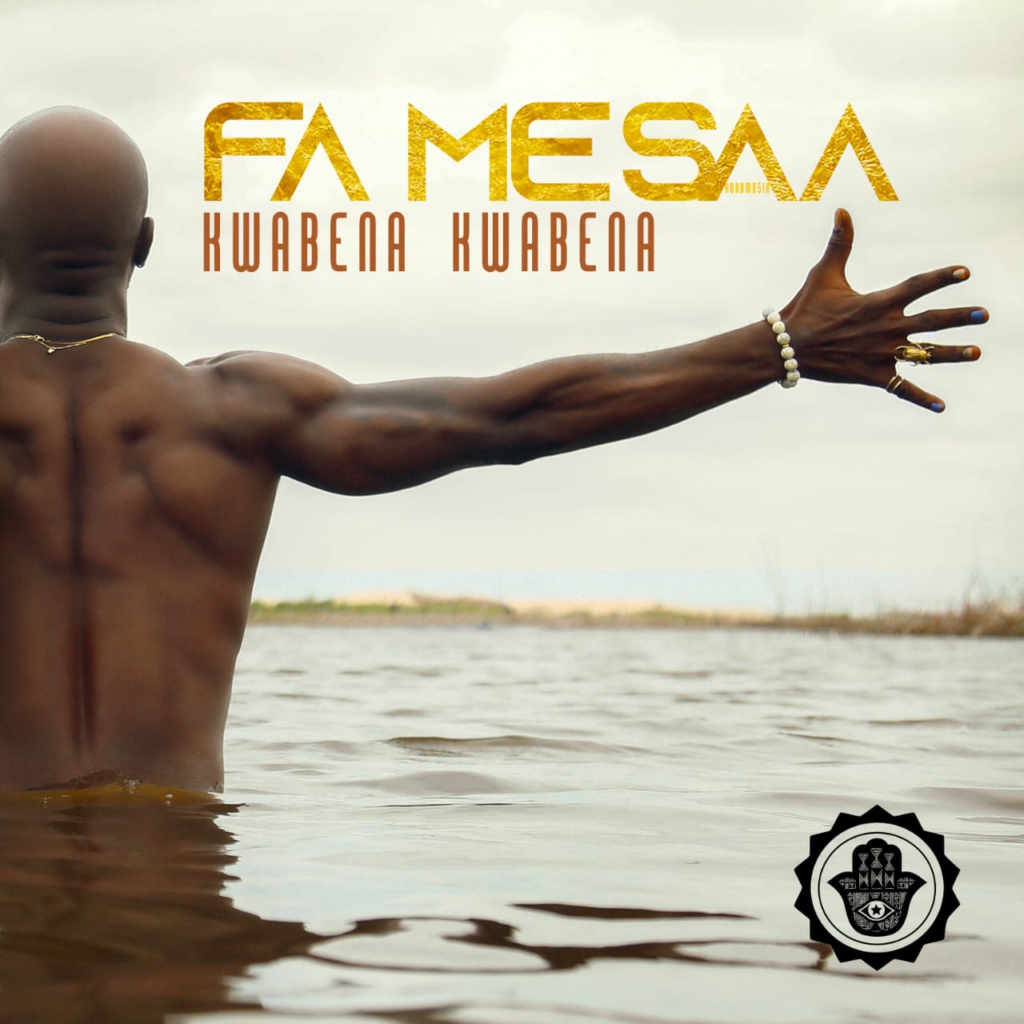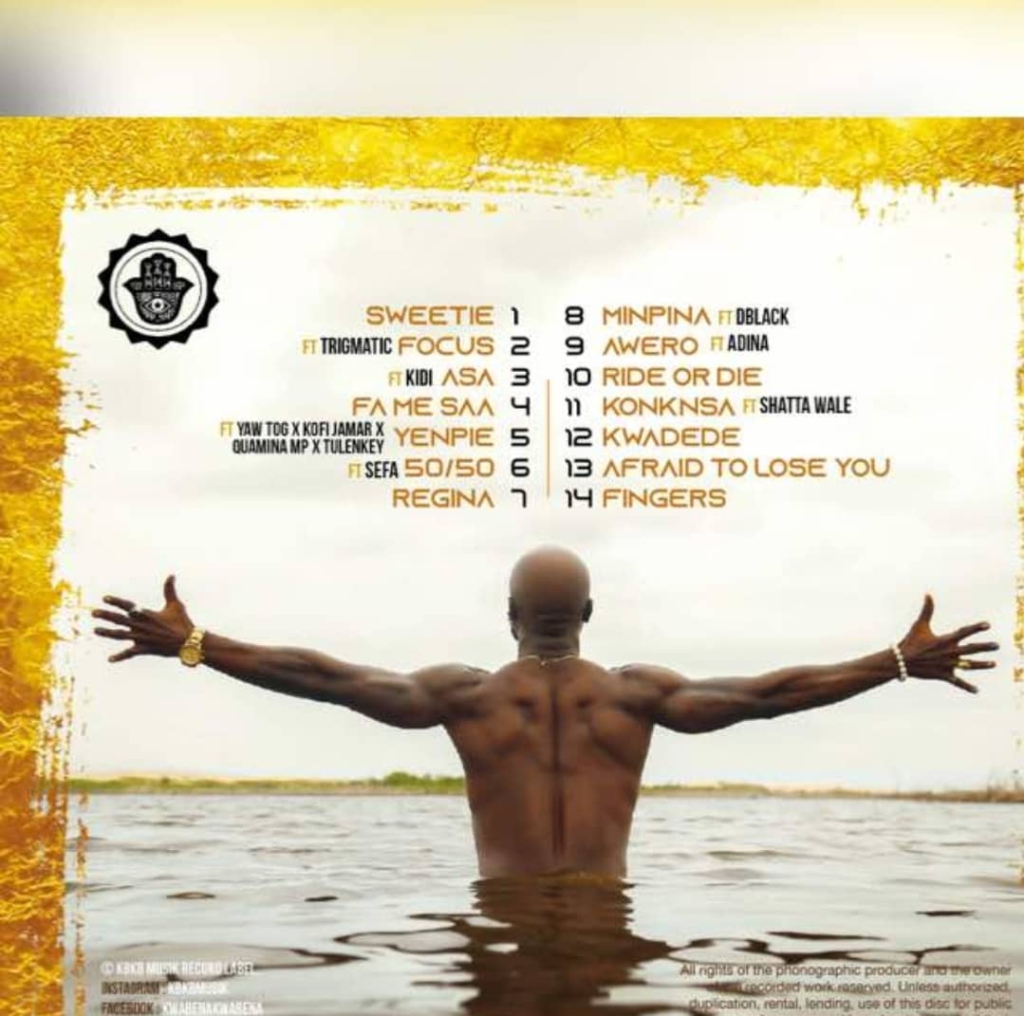Ghanaian singer-songwriter and guitarist, Kwabena Kwabena, swears by highlife, the traditional art form which counts him among its most influential modern custodians.
Since capturing mainstream notice in 2004 with his brilliant debut Aso, the artist’s career and penmanship have charted passion and pain, often unfurling via a calmly vocal flair that expedites love and carnal behaviour, or social takes that summon soul searching, cementing his utility as a prolific and limitless composer whose periodic artistic revival has ensured his residence in the hearts of listeners in his home country and beyond.

Today, with decades of significant critical success under his belt, he also boasts a unique perspective at the nexus of two musical generations — the 70s constituency that inspired him, and a contemporary cohort that continues to feed African pop.
His sixth studio album Fa Me Saa and follow-up to 2017’s Ahyesi, is powered by rigorous experimentation that involves retooling and updating inherited compositions, recycling some of the most beloved moments across Ghanaian and western pop.
A dynamic 14-tracker, the collection starts out submitting to archetypal sounds, and expands to incorporate on-trend pulses such as Afrobeats and amapiano, as well as boom-bap rap and R&B.
The LP’s harbingers, namely ‘Kwadede’, ‘Fingers’, ‘Afraid to Lose You’, ‘Sweetie’, and the Shatta Wale-assisted ‘Kokonsa’ trundle a potpourri of sonic persuasions achieved by masterful unpacking of complex historical melodic traditions to orchestrating unlikely genre fusions to prove their intertextuality.

These innovations carry on into the rest of the project and, often facilitated by folksy guitar jangling, resonant horns and thumping drums, provide a bedrock for distilling a carousel of themes and emotions. The album’s title track, for instance, is a personal essay on self-assurance, faith and resolve.
Like the Twi phrase it derives its name from, it ultimately finds its author entreating listeners to “take me as I am”. Co-conspired by producer and longtime collaborator Kwame Yeboah, the song also whirls between rhythms, ensuring an interesting and rewarding aural excursion.
Songs like ‘Sweetie’, ‘Awero’, ‘Regina’, ‘50/ 50’ and ‘Ride Or Die’ (which samples late highlife great Alhaji K. Frimpong’s classic ‘Kyenkyen Bi Adi Mawu’) allude to love; whether their author is mooning over a romantic interest or stressing his devoutness to chivalry, while offerings like ‘Focus’ bring life’s most important perspectives into sharp focus.
“When gratitude becomes essential in our lives/ blessings go follow us everywhere”, a line from that last song goes. Elsewhere on the tune, Kwabenas Kwabena sermonises: “If you focus on the hurt, you’ll continue to suffer/ if you focus on the lesson, you continue to grow.”
‘Kokonsa’ addresses detractors, while the nostalgia-inducing ‘Yempie’, which translates as “let’s go out”, soundtracks nightlife in the capital.
Kwabena Kwabena is a polyglot, hence, the album flows across multiple tongues; but his linguistic genius finds its best expression in his native Twi, which sees him fashion out innuendos that intrigue even the most conservative ears. This impish poetic technique has also become his signature, for which reason even the lewdest lines, such as are heard on ‘Minpina’, ‘Fa Me Saa’ and ‘Fingers’, drive party pleasures.
Fa Me Saa also arrives as his most collaborative effort to date, embracing a colourful assortment of an older stock and new-generation voices from Shatta Wale, D-Black and Trigmatic, to KiDi, Sefa, Adina, Yaw Tog, Quamina MP and Tulenkey. This is all tied together by contemporary production that ensures its proneness to the replay button.
Its exploratory intentions aside, Fa Me Saa highlights Kwabena Kwabena’s cultural relevance and exquisite talent for working out the junction between Ghana’s old and present sounds, gleaning profound musical capsules that blur time and space.






